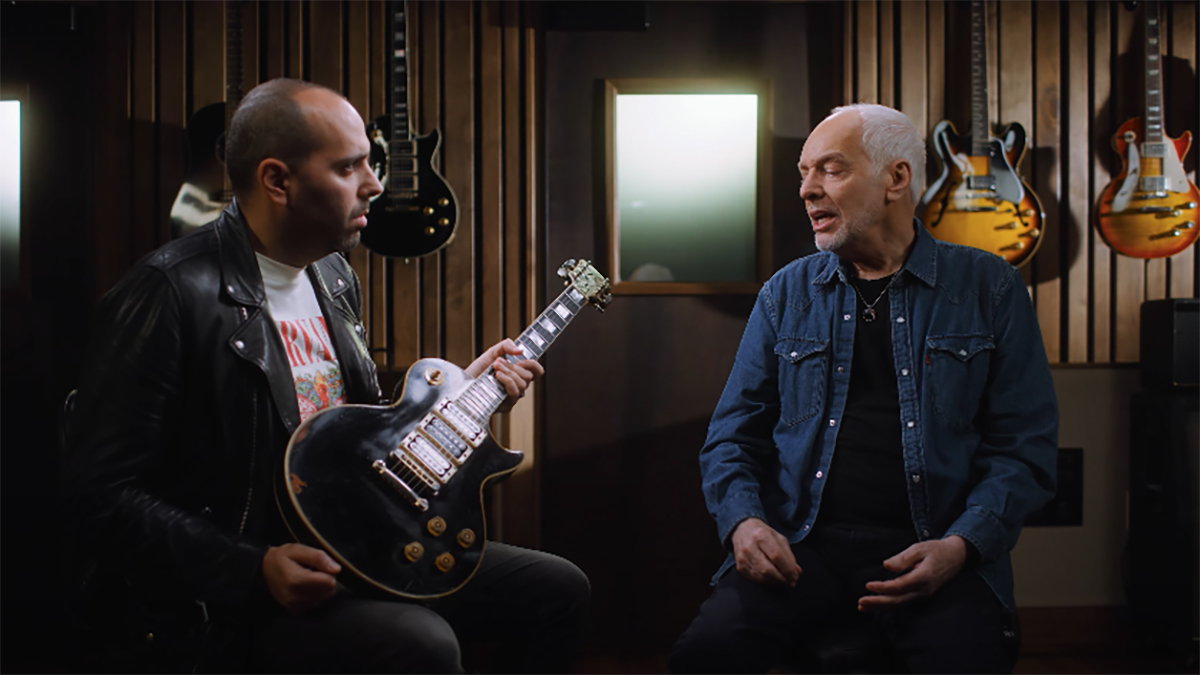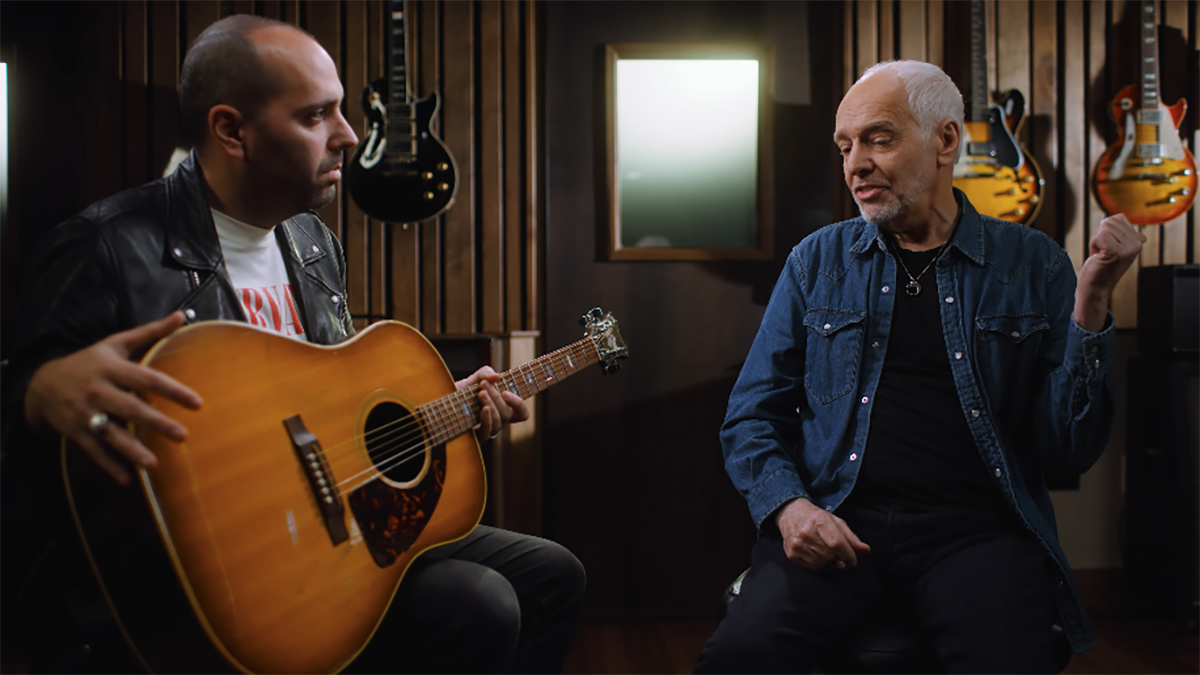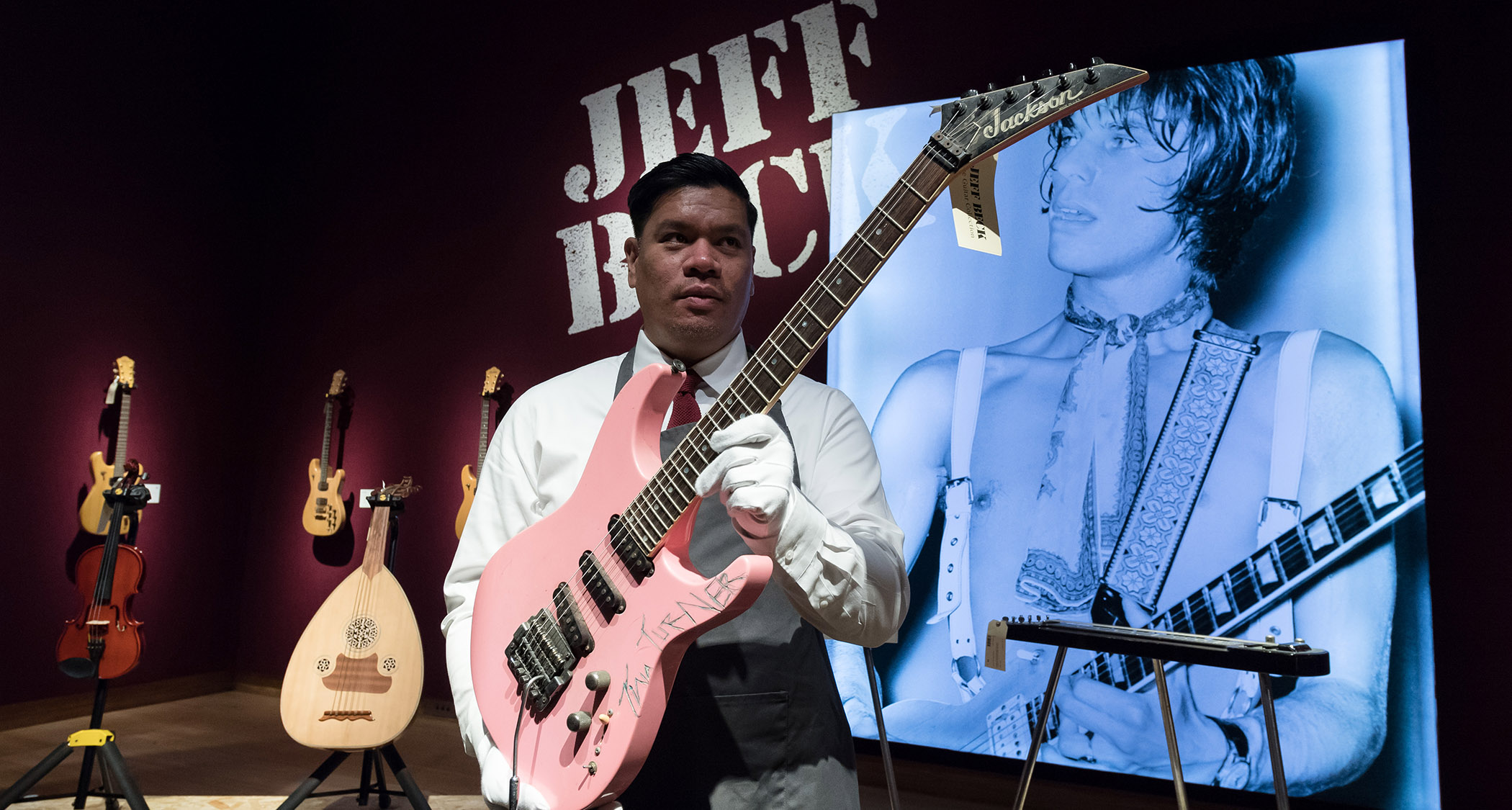“So many people lost their guitars. I lost 44”: Peter Frampton recalls how he lost and recovered guitars through floods and plane crashes as he shows off his eye-watering gear collection on Gibson TV
Gibson TV has released its latest episode of The Collection – a web series that sees the firm sit down with big name players to pick apart their vintage guitar gear, and reflect on the stories behind each historic piece.
For its newest hour-and-a-half installment, Gibson’s Mark Agnesi visited Peter Frampton to explore the guitars behind some of his most iconic cuts – as well as recount the tales of loss and recovery that have defined the rock master’s collecting career.
As far as guitar collections go, Frampton’s is especially steeped in history. Not only did he effectively have to restart his guitar collection after losing 44 individual guitars – and numerous pieces of other gear – in a flood in 2010, he also experienced what has become one of the most famous tales of lost-and-found guitars in history.
To that end, the most notable instruments in Frampton’s episode of The Collection are the ones whose histories are interwoven with such stories.
The “Phenix”, for example, takes center stage. The mid-’50s era triple-humbucker Black Beauty Les Paul Custom needs no introduction: as seen on the cover of Frampton Comes Alive!, it is one of the most iconic Les Pauls of all time, and made its way on “just about every track [Frampton] recorded between 1970 and 1980”.

However, in 1980, the “Phenix” went down in a cargo aircraft – which crashed while taking off from Curaçao – and it was believed to have been lost forever. Miraculously, 31 years later, the Les Paul was reunited with its rightful owner after it had been picked up and played over the years by a local musician.
“It was just one of the best feelings in the world,” Frampton recalls of being reunited with the “Phenix”.
All the latest guitar news, interviews, lessons, reviews, deals and more, direct to your inbox!
Frampton’s 1964 Epiphone FT-79 Texan is another guitar that had once courted tragedy. The acoustic had been locked away at SoundCheck in Nashville, and was one of the only guitars that survived following a devastating flood in 2010.
“I didn’t realize how bad it was,” Frampton reflects. “They said they were going to have to open the dam, because it was getting crazy – it would have broken. They said it would probably get to the bottom of the steps of SoundCheck. It didn’t. It went all the way up.
“My Marshalls were just above the water line. So many people lost their guitars. I lost 44 guitars.”

As such, the Texan serves as a reminder of the flood, complete with water damage on the body and headstock. But its significance stems beyond its near-death experience: Frampton used it to write “just about every track” that made it onto the live record – including Show Me The Way and Baby, I Love Your Way.
As Agnesi succinctly sums it up: “This is equally iconic [as the “Phenix”]. This wrote some of the biggest hits in the history of rock ‘n’ roll.”
Elsewhere in the video, the pair peruse a stunning 1960 Gibson Les Paul Standard – which is brighter than the Phenix, according to Frampton – a 1959 ES-175D, and, as a pleasant surprise, lots of Fenders. That list includes a ‘58 Strat, ‘58 Jazzmaster, ‘59 Telecaster and ‘68 Bass VI.
Head over to Gibson TV to watch the full episode.

Matt is the GuitarWorld.com News Editor, and has been writing and editing for the site for five years. He has a Masters in the guitar, a degree in history, and has spent the last 19 years playing everything from blues and jazz to indie and pop. During his GW career, he’s interviewed Peter Frampton, Zakk Wylde, Tosin Abasi, Matteo Mancuso and more, and has profiled the CEOs of Guitar Center and Fender.
When he’s not combining his passion for writing and music during his day job, Matt performs with indie rock duo Esme Emerson, and has previously opened for the likes of Ed Sheeran, Keane, Japanese House and Good Neighbours.
